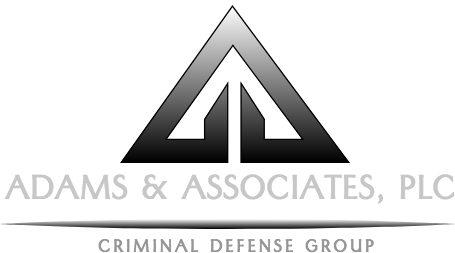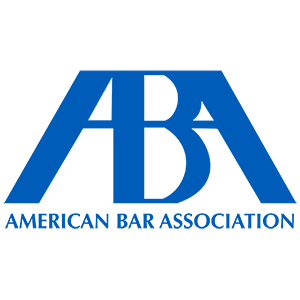Sealing Criminal Records in Arizona
January 30, 2023
On December 31, 2022, Arizona began allowing qualified individuals with criminal records to petition (a formal request made to a court) to have these records sealed pursuant to A.R.S. § 13-911. As a preliminary matter, it is important that you understand the difference between expungement and sealing:
Expungement: The permanent removal of a criminal record. This prevents the public, courts, and law enforcement agencies from accessing these records. Essentially, it is as if the crime was never committed in the first place. For example, Prop 207 allows certain individuals to expunge low-level marijuana convictions that occurred before November 30, 2020.
Sealing: A sealed document is effectively hidden from public view but still accessible by courts, law enforcement agencies, and certain types of “sensitive” employers.
The statute provides that a judge must grant the request to seal your records if doing so “is in the best interest of the petitioner [you] and the public’s safety.” Essentially, you must convince the judge that sealing your records is in everyone’s best interest. Since this statute vests so much discretion in judges, it is crucial that you have a competent, experienced attorney to advocate on your behalf. If your petition is denied, you must wait three years before applying again. We are here to ensure that your petition is done right the first time.
Click Here for our Information Packet
Who is eligible?
If you were convicted of a criminal offense and have completed all the terms and conditions of your sentence. Terms and conditions include probation, payment of fines, and restitution. Once these conditions have all been completed, there is a waiting period that is determined by the seriousness of the offense.
-
Class 2 and 3 felonies………………………………………….. 10 years
-
Class 4, 5, and 6 felonies………………………………………… 5 years
-
Class 1 misdemeanor……………………………………………. 3 years
-
Class 2 and 3 misdemeanors…………………………………….. 2 years
If you were charged with an offense that was ultimately dismissed, if you were arrested and no charges were filed, or if you were found not guilty at trial.
Who is not eligible?
If you were sentenced as a “dangerous offender” pursuant to ARS Section 13-704. Crimes are considered “dangerous offenses” when:
-
A deadly weapon or dangerous instrument is discharged, used, or threatened.
-
Intentionally or knowingly causing a serious physical injury.
Convicted of a “dangerous crime against children” (DCAC) pursuant to ARS 13-705. This sentencing enhancement applies to crimes committed against juveniles. Examples of DCACs include:
-
Aggravated assault resulting in serious injury
-
Sexual assault/molestation/sexual conduct
-
Commercial sexual exploitation
-
Child abuse
-
Kidnapping
-
Involving or using minors in drug offenses
-
Manufacturing methamphetamine under circumstances that cause physical injury to a minor
Convicted of a “serious offense” or a violent or aggravated felony as defined in ARS 13-706. Some examples of “serious offenses” include:
-
Murder or manslaughter
-
Aggravated assault resulting in serious injury
-
Sexual assault
-
Arson
-
Armed robbery
-
First degree burglary
Convicted of any offense that has either of the following as an element of the offense:
-
The discharge, use or threatening exhibition of a deadly weapon or dangerous instrument.
-
The knowing infliction of serious physical injury on another person.
Convicted of sex trafficking pursuant to section 13-1307.
Convicted of any Class 2, 3, 4, or 5 felony sexual offense pursuant to ARS 13-401 – 13-428. Including but not limited to:
-
Sexual abuse/assault
-
What is commonly known as“revenge porn” pursuant to ARS 13-1424
-
Sexual extortion
Convicted of any Class 2, 3, 4, or 5 felony obscenity offense pursuant to ARS 13-3501 – 13-3513. Obsencity crimes generally include:
-
Providing minors with specified materials such as books, movies, magazines, and drawings that describe or depict sexual activity
Once your record is sealed, now what?
Congratulations! While you can now put this chapter of your life behind you, you need to be aware that these records will still exist and can be used against you in the following limited circumstances:
-
Alleged as an element of an offense.
-
Used as a historical prior felony conviction.
-
Admissible for impeaching any party or witness in a subsequent trial.
-
Used to enhance the sentence for a subsequent felony.
-
Used to enhance the sentence for a D.U.I. conviction.
-
Pleaded and proved in any subsequent prosecution of the person by this state or a political subdivision of this state.
-
Used as a conviction if the conviction would be admissible if the conviction was not sealed.
Employment Obligations
In most situations, you are now legally entitled to say, “I have never been charged or convicted of a crime” in response to questions on employment, housing, financial aid, or loan applications. However, there are certain types of employers that you must disclose your criminal history to.
-
Applications that require a fingerprint clearance card.
-
Applications for public works projects (A.R.S. Section 34)
-
If your case involved burglary or theft and you are applying for a job that requires entering into and performing services inside of a residential structure. Examples include positions such as plumbers, electricians, HVAC, etc.
-
If your case involved child abuse or aggravated assault and the person is applying for a job involving supervising, educating, or administering care to minors. Examples include positions such as teachers and daycare providers.
-
The sealed case records involved theft, theft of means of transportation, forgery, taking the identity of another or fraudulent schemes and artifices and the person is applying for a job involving accounting, overseeing, transporting, handling or managing another person’s money or financial assets.
-
Any position with a law enforcement agency, a prosecutors office, a court, a probation department, a child welfare agency, the department of child safety, the department of juvenile corrections, or the state department of corrections.
-
Applications to adopt or foster children.
-
Certain positions that work with the administration of medicare, medicaid, or any other federal health care program.








